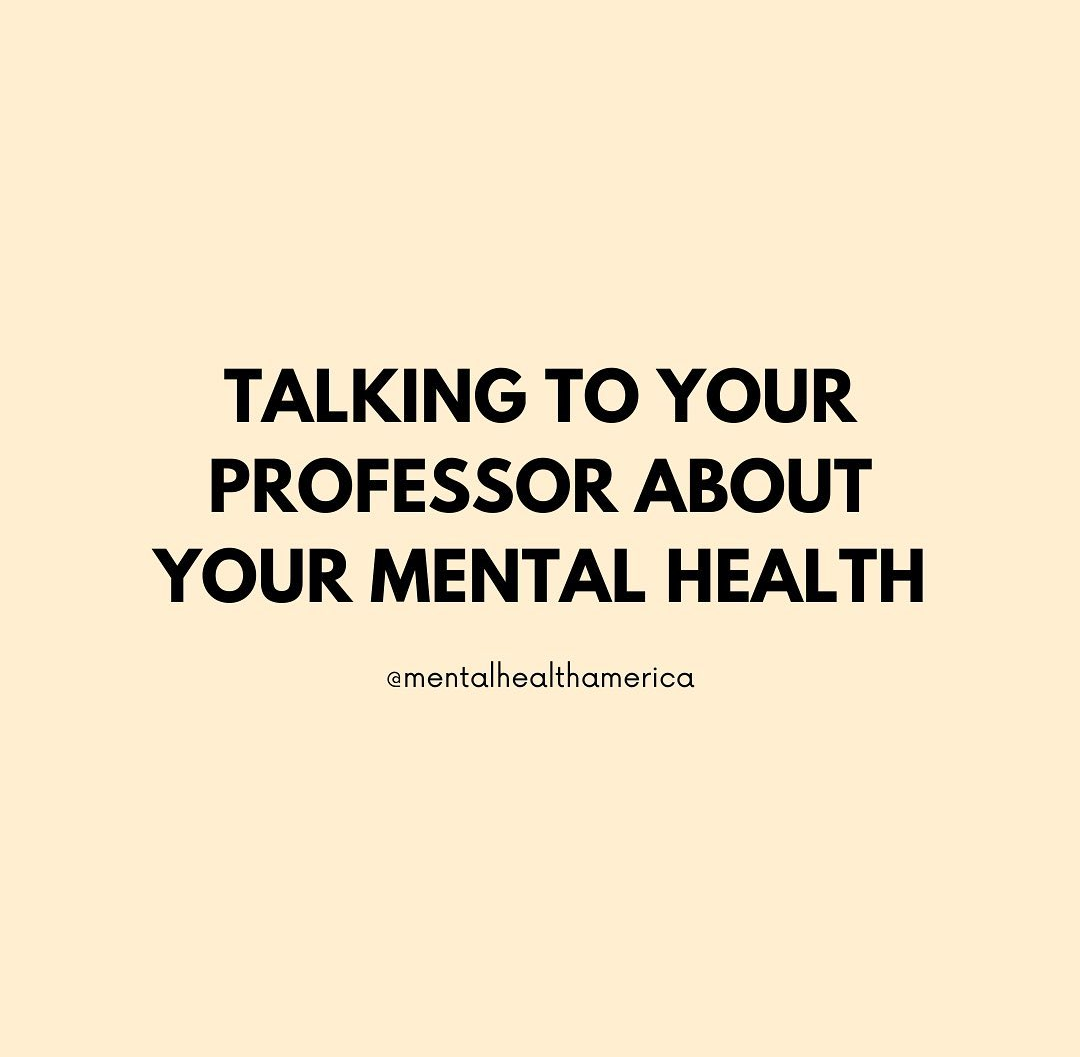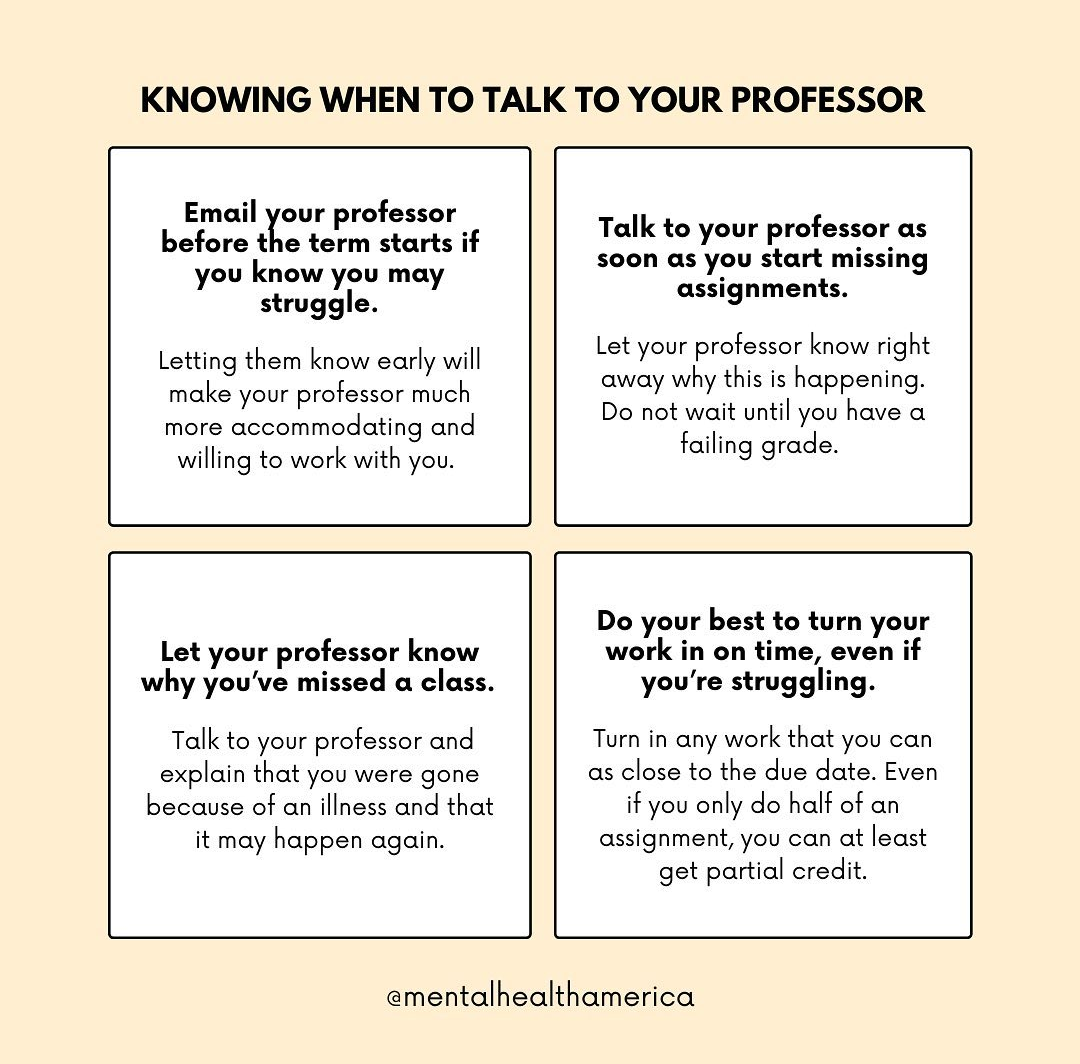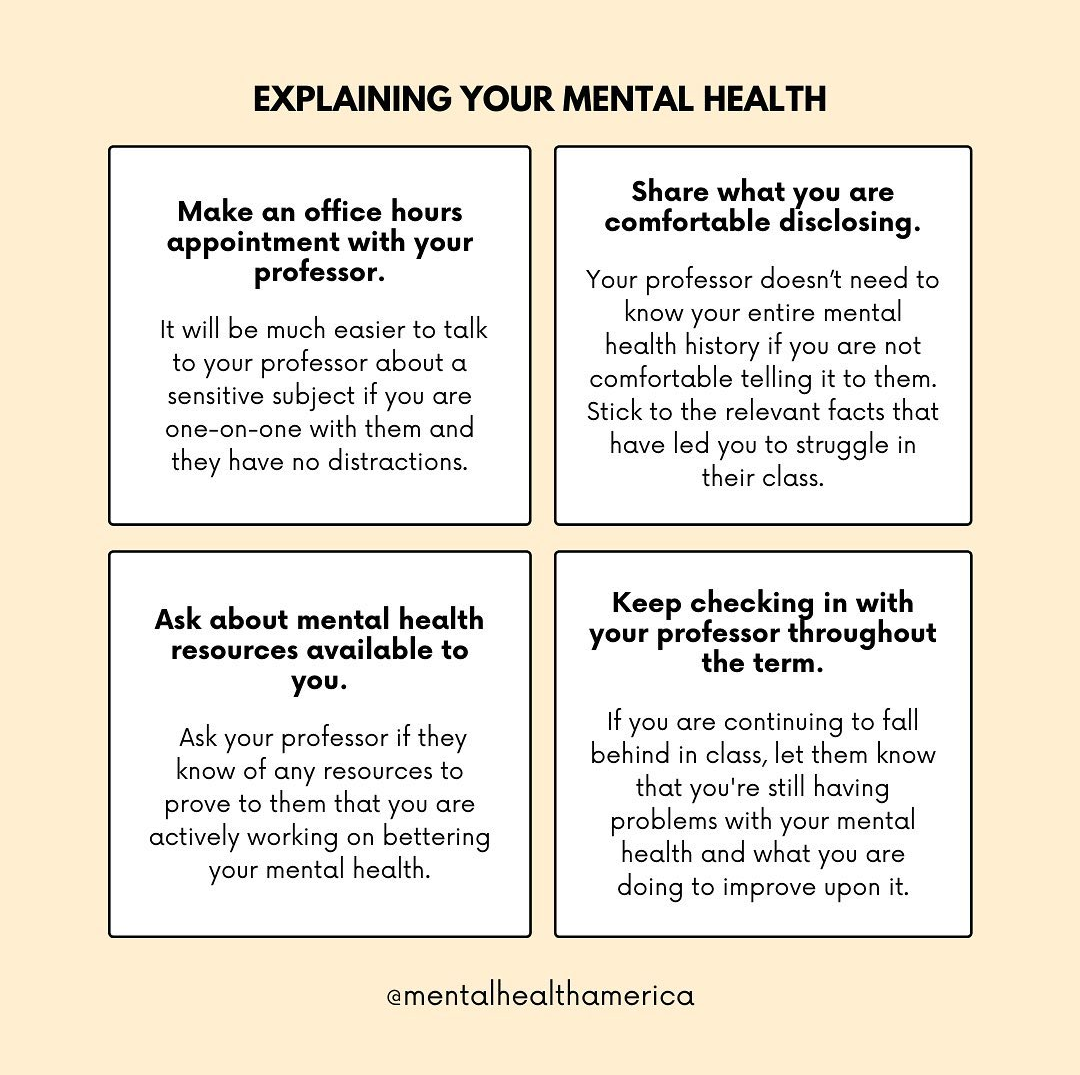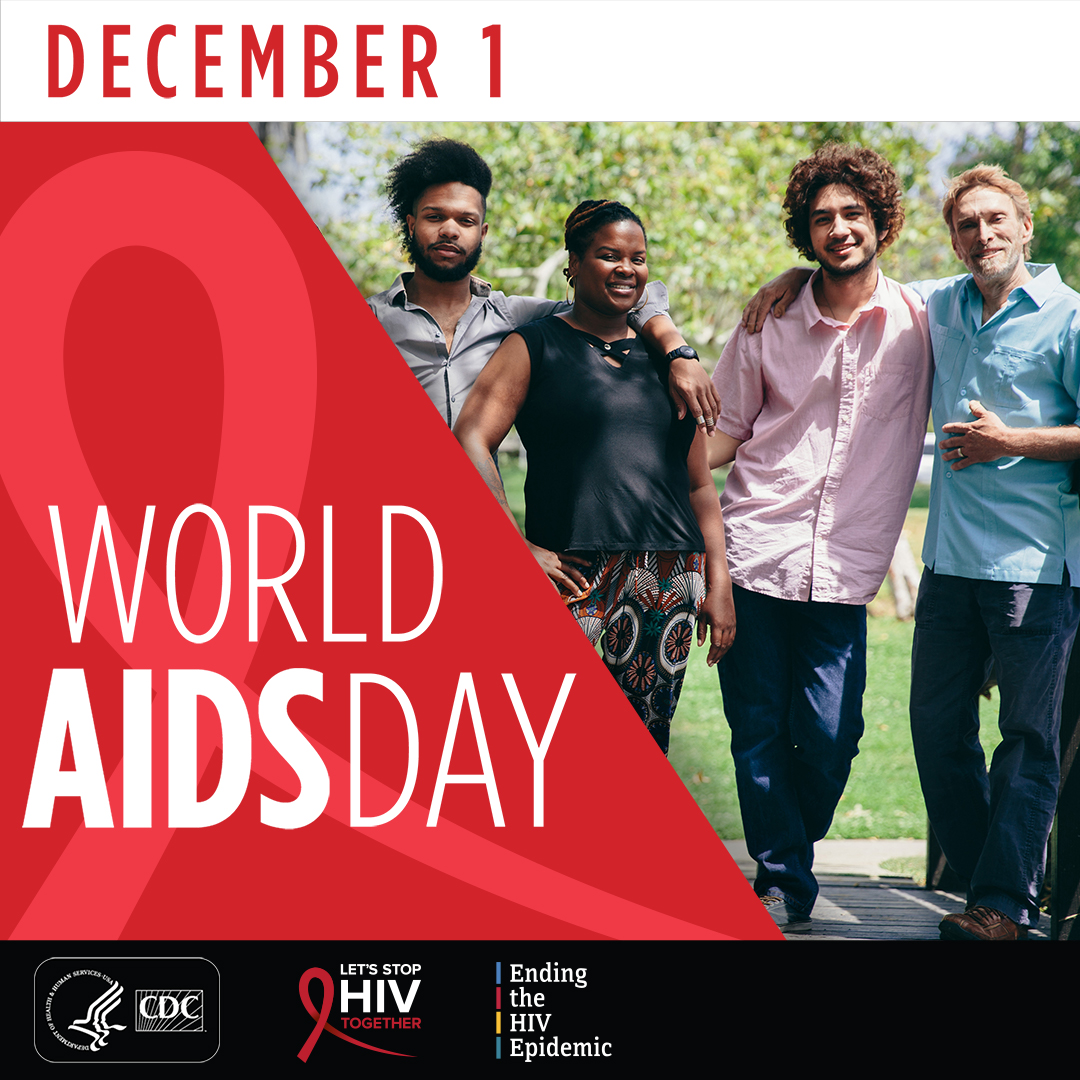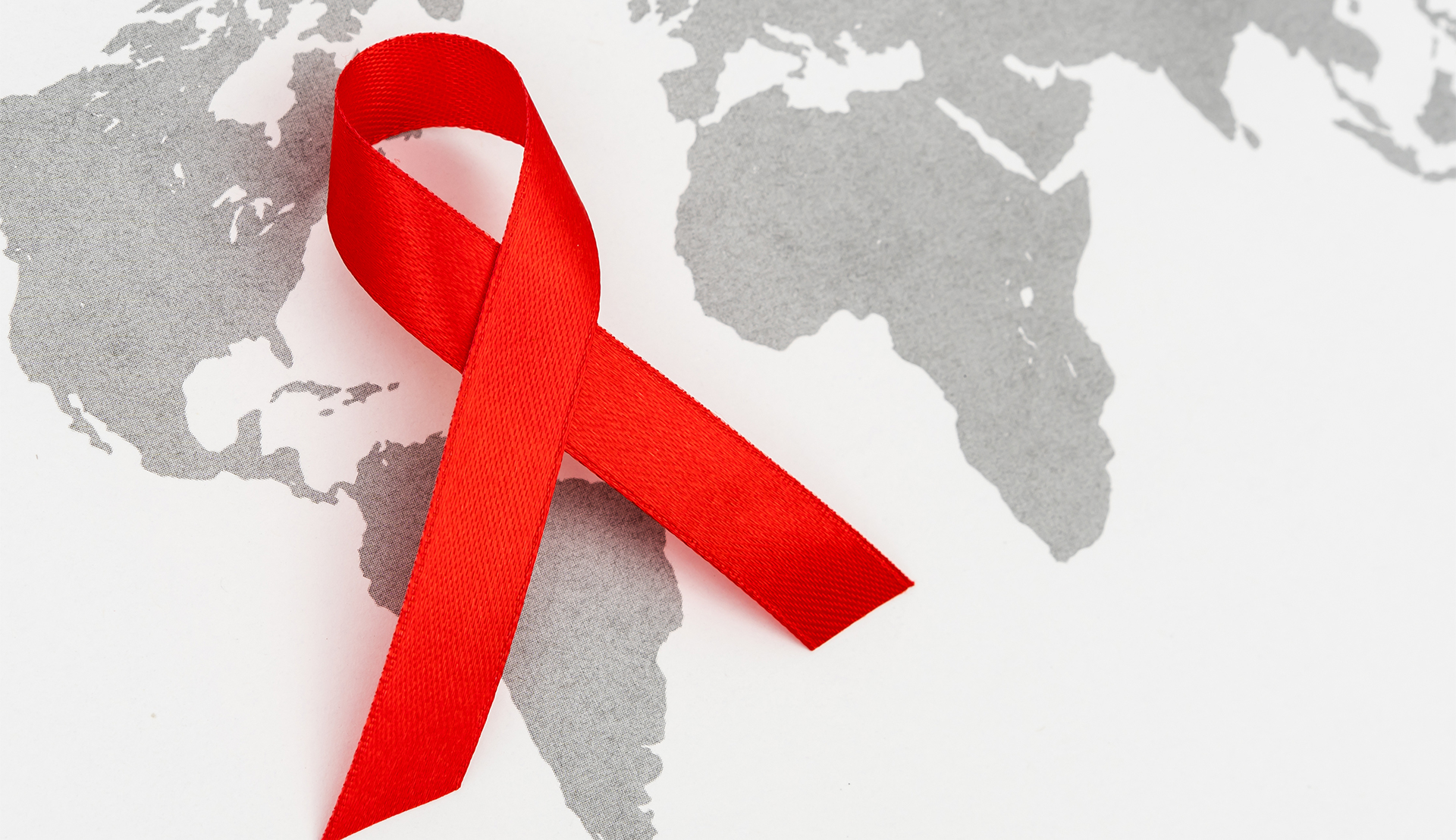Recognizing, discussing and seeking assistance for mental health concerns is difficult. There is a vulnerability (and a fear of stigma for many) that may cause one to hesitate to communicate and/or pursue help, if at all. Know that you are not alone- mental wellness shifts for everyone, and everybody finds themselves needing help sometimes. This graphic from Mental Health America illustrates some options and suggestions for how to communicate with your professors about your struggles and needs.
NOVA-specific options you may also consider include:
- File a Student Needing Assistance report (struggling with academic, personal, emotional difficulties, behavior concerns)
- File a Title IX report (discrimination based on sex, gender identity or gender expression, dating/domestic violence, stalking, sexual assault and sexual harassment)
- Contact Student Ombuds Services (safe place to bring questions and concerns about the College’s policies and/or procedures)
- Explore NOVA’s Mental Health Provider Referral Database
- Contact Accommodations and Accessibility Services
- Use the Virtual Self-Care Kit
- Contact NOVA’s Confidential Advocate at 703.323.2136
- Late Withdrawal with Mitigating Circumstances
- Special Circumstances for Tuition Refund
Remember, you are cared for, and NOVA is here to support you! If you find yourself feeling unsafe and in need of support, contact the National Suicide Prevention Lifeline:
For immediate assistance, please call 911.

